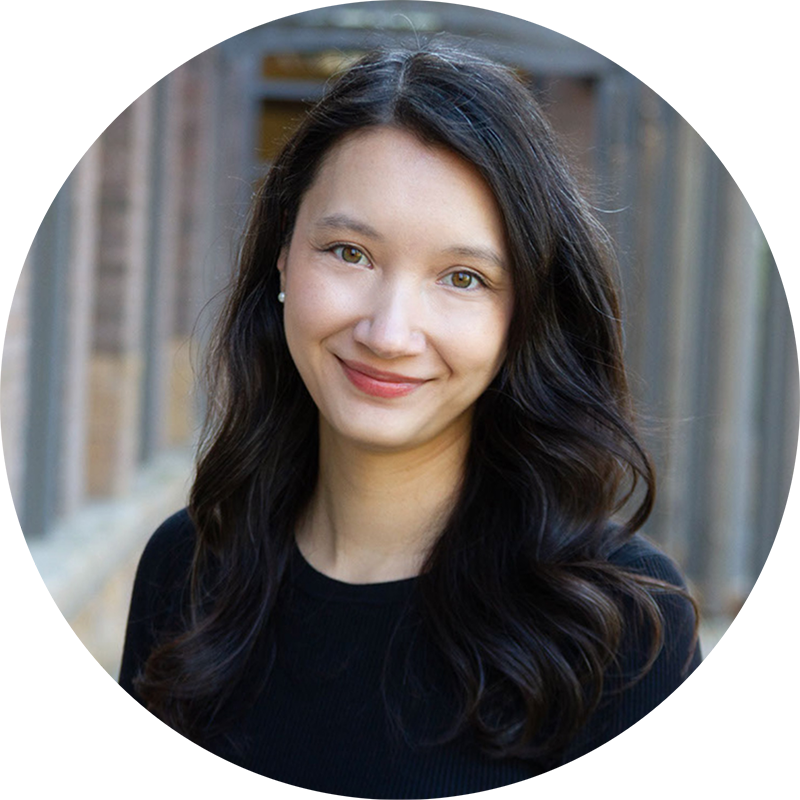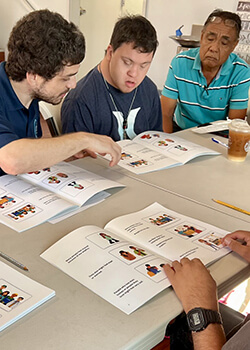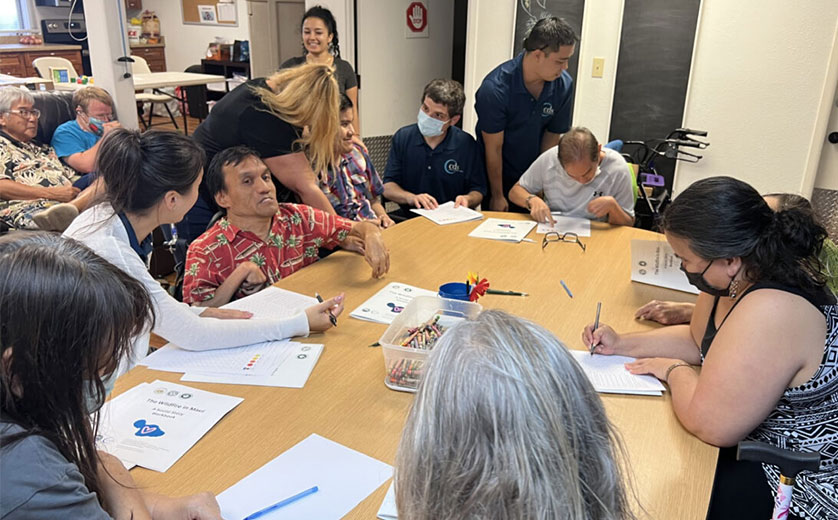When the devastating wildfires ravaged Maui last August, Maya Matheis, a Brown School alumna and clinical psychologist, was at home in Honolulu, eager to help. Now, a year later, her contributions have made a significant impact on a frequently overlooked group.

Matheis, MSW ’14, is a junior specialist faculty member at the University of Hawai‘i at Mānoa College of Education’s Center on Disability Studies. She specializes in child and adolescent mental health and quickly saw the need to support individuals with intellectual and developmental disabilities (I/DD) and their families in coping with the trauma of the fires.
“I was in Zoom meetings and emailing people saying, ‘I have this skill set. I know that these people are often left out. How can I help? Who should I talk to?’ But everyone was still figuring stuff out,” Matheis recalled.
After considering but ultimately deciding against traveling to Maui to provide direct support, she developed the idea of creating an online mental health toolkit for families and providers. By October 2023, just two months after the fires, she introduced the free, downloadable toolkit. The project was backed and funded by the Hawaii Department of Health Developmental Disabilities Division. The toolkit includes trauma-informed workbooks and resource cards with clear language and visual aids, with versions tailored for children and adults, ensuring accessibility for all affected.

“We tend to want to protect individuals with I/DD and children by not giving them the full story, for fear of upsetting them,” Matheis explained. “But they are generally very intuitive. They see and hear things and pick up on the anxiety and distress of those around them. We know talking about these traumatic events helps heal PTSD symptoms.”
Matheis notes that individuals with I/DD often experience the same mental health challenges as everyone else, including PTSD, yet interventions for this population typically focus on behavior rather than emotional support or coping strategies. The toolkit let to a collaboration between the Center for Disability Studies and Hawaii’s Department of Health Developmental Disabilities Division to provide direct mental health support to people with I/DD and their families affected by the Maui wildfires. Since its introduction, the toolkit has been widely distributed through community organizations, health fairs, and conferences, including a request from the Maui County Office of Aging for adults with dementia. “I love that they thought about that,” Matheis remarked.
The workbooks use a social story format, answering “WH” questions — where, when, who, what, and why. They depict the wildfire’s impact, such as smoke, fire, and people fleeing, and address emotional reactions like fear, sadness, or worry. The workbooks also emphasize the importance of helpers and the rebuilding process, ending on a hopeful note. Their approach aligns with the Hawaiian cultural practice of sharing stories, or “talk story.”
Feedback on the toolkit has been overwhelmingly positive, with families and day programs affirming its effectiveness in helping individuals process their experiences. One user even keeps the workbook next to his bed for reference, underscoring its practical value. “People find it really helpful,” Matheis shared.
“We need to be talking about the things that harm us to be able to heal,” she said. “My big takeaway from this is that people don’t talk about traumatic experiences with this population nearly enough, or if they do, it’s a one-time thing and trying to gloss it over, whereas we know that we need to talk about it.”
The wildfires destroyed over 2,000 homes, claimed more than 100 lives, and left the historic district of Lahaina in ruins, deeply impacting the community. As recovery efforts continue, Matheis hopes the toolkit will provide ongoing support. “People are living in these communities with immediate triggers seeing the burn zones,” she noted. “The whole community is traumatized and grieving together. Coming up to this one-year mark, I think there’s a lot of heaviness.”
